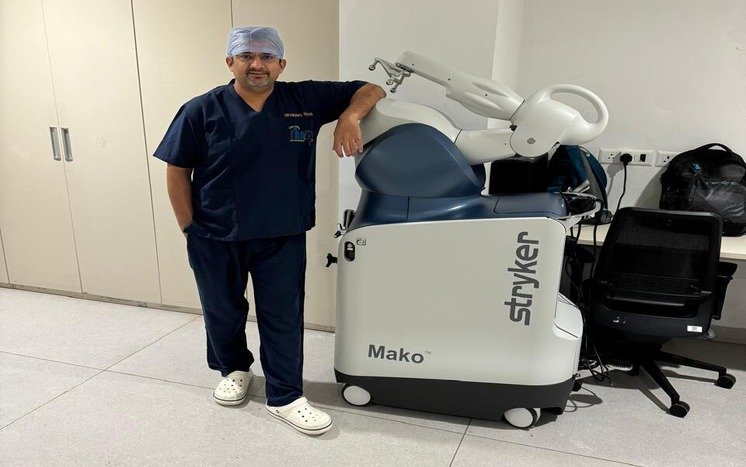
10:00am to 04:00pm (Mon to Sat) - Amrita Hospital, Faridabad
06:00pm to 08:00pm (Mon to Sat) - Arthrocare Clinic, Noida
10:00am to 04:00pm (Mon to Sat) - Amrita Hospital, Faridabad
06:00pm to 08:00pm (Mon to Sat) - Arthrocare Clinic, Noida
 February 7, 2024
February 7, 2024
Knee replacement surgery, also known as knee arthroplasty, is a common procedure that has transformed the lives of millions of people suffering from knee pain and mobility issues. However, one of the most frequent questions that candidates for this surgery ask is related to timing: “Is there an ideal age for knee replacement surgery?” This blog delves into how age influences the decision to undergo knee replacement and what factors should be considered to determine the optimal time for surgery.
Traditionally, knee replacement surgery was often reserved for older adults, typically those over 60. The reasoning was straightforward: artificial knees have a lifespan, and performing the surgery on younger patients might mean they would need a revision surgery later in life. However, advancements in surgical techniques and prosthetic technology have shifted this perspective.
Recent trends show an increase in knee replacement surgeries among younger patients, sometimes even those in their 40s and 50s. This shift is partly due to the improved durability of prosthetic knees, which can now last 20 years or more, and the active lifestyles many wish to maintain. For younger patients, the decision to undergo surgery often hinges on debilitating pain, decreased quality of life, and the desire to regain mobility and return to normal activities.
For older patients, the primary considerations often revolve around overall health and the ability to recover from surgery. Advanced age is not necessarily a deterrent to surgery. Instead, the focus is on whether the patient is healthy enough to undergo the procedure and manage the rehabilitation process. Many older adults successfully undergo knee replacement surgery, experiencing significant improvements in pain and mobility.
The short answer is no. The decision to undergo knee replacement surgery is highly individualized, based on a variety of factors including severity of symptoms, overall health, and personal goals. The “right” time for surgery is when the benefits outweigh the risks, and the patient is mentally and physically prepared for the procedure and the recovery process.
In considering knee replacement surgery, the focus should shift from age to quality of life. Advances in medical technology mean that knee replacements are now more durable and suited for a wider age range of patients. The key is a thorough evaluation by Dr. Mrinal Sharma, an orthopedic surgeon, who can assess your specific situation and guide you in making the best decision for your health and lifestyle. Remember, the goal of knee replacement is to alleviate pain and restore mobility, enabling you to enjoy life to its fullest, at any age.





© 2024 Dr. Mrinal Sharma | All rights reserved. Designed and Developed by DigiTrend